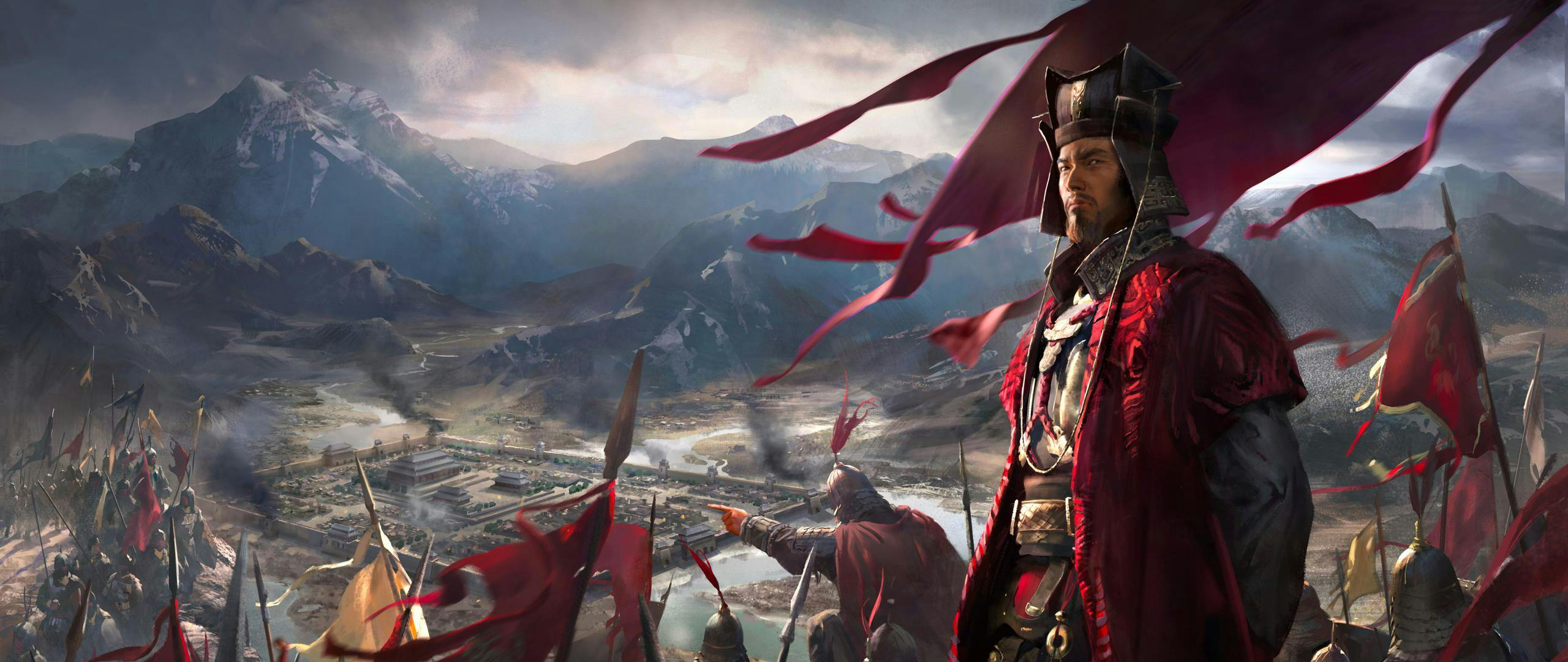
While I have previously indicated an unwillingness to explore the actual concept of leadership in my writing, as always conversations with smarter friends have made me start thinking -- and so here we are.
Leadership is a tricky subject to nail down. I’m not going to rely on some dictionary definitions or even strong historical examples (of which there are many). Going down a road of strict definition often ends up with people defending genocidal dictators in an effort to be purely rhetorical and logical. The fact of the matter is that leadership, like governance, is something that humanity is still far from perfecting -- and that our goalposts of what is “effective” or “good” continue to move and change, as they should. Leadership, however, has the appeals that governance doesn’t. We are wired, in our modern age, to focus on the individualistic, the idealistic, the heroic (in a technical sense). Nevermind that the government is comprised of thousands of unelected, lifelong bureaucrats largely performing incrementally significant actions across a wide span of time and niche -- people only really care when the primary elected figurehead is up for debate. We desire, deeply, to have a connection to a central, authoritative (not necessarily, however, authoritarian) figure -- something which often leads us as humans into tricky and toxic situations across many sections of verticals of our existence.
Practical guides on leadership are similarly flawed. While there is true wisdom in the Prince and in the Art of War, when we separate these messages and ideals from historical connotations, we often arrive at incorrect conclusions. For all of the alpha-mentality mumbo jumbo that many (predominantly male) motivational speakers made their bread with, we are rarely in a truly analogous position to Sun Tzu (and, worth noting, the man beheaded two concubines to make a point about command and fear) -- and even if we were, our modern lens would change the way we perceptive the morality and effectiveness of this leader’s actions.
I have been that fundamentally flawed leader personally. I led teams for quite a while, experimenting with different strategies, falling into traps I had laid for myself, getting entangled in new and irritating ways. I’ve fired close friends before, shouldered financial setbacks, earned the ire of even higher-up leaders than myself. I also experienced a fair share of triumphs, sure, but the failures vastly outstripped them -- if not numerically, then certainly in the weight they put on my soul. As grateful as I am for the practical insight, I don’t think I would want to repeat these experiences any time soon.
Of course, what does any of this have to do with cryptocurrency and the world of decentralized finance? To understand what makes our leaders in crypto effective (nor not) we must find some metrics of leadership.

Let us assume that there are three criteria a successful leader must have: Vision, Ability, and Empathy. That is:
- The vision to achieve a goal, to create something new, to believe in their process. To incite the fire of that vision in others, to make followers believe, to articulate and present it clearly. The innate sense of purpose and calling, the spark that makes others set their hearts ablaze.
- The ability to, on one level or many, execute in the development and progress of that vision. A tangible set of skills that aid the process in ways concrete or abstract. The competence to overcome challenges and implement new ideas. The overall mastery over those around them.
- The emotional intelligence required to lead a team. The ability to support, commiserate with, and promote others. In a macro sense, a sense of responsibility and morality to the world around them. Magnanimity is the privilege of princes.
Immediately one thinks of those signs in tattoo shops where we see the triangle of quality, speed, and price (or at least I do).

Immediately it is apparent that finding an individual with all these of these pillars in abundance is rare -- even more so, it is clear that many leaders might only possess one. Could one ever claim that Mark Zuckerberg is a pinnacle of emotional intelligence and empathy? Since the death of Steve Jobs, can we claim that Mr. Tim Apple is truly a visionary?
The middle path dictates that, well, of course we will not have the ideal candidate for leadership, that we should seek someone who balances these three pillars in some measure, possessing relative ability across each -- which of course is just as rare in its own right. At best, our leader should exemplify the values that we hold in terms of both work ethic and drive and a moral utilitarianism for humanity and the world at large.
Why do we need leaders at all?
Of course, this is a large aspect of the increasingly decentralized and flat organizational structure of our world. We have begun to question the very purpose of having one person that sits atop it all -- particularly as we now live in a time where the average American CEO makes nearly 300x their average employee’s take home pay. The abuses and expense of this role seem so obvious, that it seems obvious to do away with it. So why are we still so obsessed with finding a leader, a hero, to follow?
There is, I think, a fundamental human desire to be attracted to examples of extremes -- extreme wealth, brilliance, creativity, beauty. I also think, more often than not, we associate these traits with success and goodness -- see the Greek notions around beauty as literal divinity and proof of favor. We are willing to overlook the questions of whether Elon Musk has actually ‘invented’ anything, or relies heavily on government subsidies, or acquired initial wealth from a family history of Apartheid-era abuse, or enabled his family to profit from insider trading and acquisition, etc etc etc because we love how rich he is, how grand the PR statements are, how soyface poggers it is that Tony Stark is real. American exceptionalism in particular drives the United States to not just consider these rich and successful to be our standard bearers -- but also our distant relatives, the us who is waiting just around the corner when success will inevitably come.
"Socialism never took root in America because the poor see themselves not as an exploited proletariat but as temporarily embarrassed millionaires." - John Steinbeck
There are other reasons, of course, why we crave leaders. Many people are simply tired, tired of the constant decision flow and game theory and risk-reward calculations and just want someone benevolent to just tell us what the fuck to do God, please. The overstimulation and acceleration of time of the modern age has rendered us exhausted and as we slowly succumb more to our various anesthetics, we would like someone to tug our leash.

I personally am in a third group, in my desire to find a leader, in which I am a stupid, hopeless romantic who has read too much manga and now am looking for a just and worthy King worth dying for. In the absence of a moral center and truly benevolent authority in the modern age, myself and members of this subsegment wish to find a leader of a state/project/Discord that embodies our beliefs and that we can devote our talents to wholehearted -- one that can also draw out and develop the best features of ourselves, perfecting us as we serve the celestial empire.
But that is all so much psychobabble, pseudointellectual bullshit -- and worse, weeb nonsense.
The real crux is that we need leaders because not everyone has the capability to make hard decisions, awkward choices, or to inspire. A leader has the ability to do so, and more, and do so effortlessly. To quote:
"Do you understand the true power of a sovereign? A raw man must kill with his bare hands. The battered warrior, a weapon. The commander, his bellowing voice, the conspirator, a whispered word. But all these pale compared to kingship. A true sovereign need not flex a single muscle in his body, and a hundred men die. A true sovereign may murder without a single impulse, or even intent, sight, breath, or even though of his murder. He is an idiot indifferent to his own violence. He has sublimed the act of obliteration. That is the meaning of kingship.” - Au Vam.
In a sense, this capacity for violence -- meaning here, the ability to effect and alter the lives of many other individuals at your own discretion -- makes the leader almost a sacrifice; a non-human amoral entity that can optimize decision making and kill inconvenient emotion.
Of course, this is all ignoring the fact that rarely do leaders lead alone, there is almost always a team behind them, an so on. But the power of the figurehead is what is most important -- in the traditional sense, whether a leader does or does not actually do anything, their mere existence is necessary as a focal point of effort, attention, and energy.
Does this matter in crypto?
Duh. Yes. Obviously. Perhaps not in intention, but certainly in practice. For all our posturing at anonymity and egalitarianism and anti-authority, it usually seems like we love a leader. Would the story of Chef Nomi and the downfall of SushiSwap be as compelling without our SBF component -- and then it’s resurrection with Maki? Would the, dare I say, almost feudal identity politics of the Frog Nation be anything without Dani? Would Tetranode even exist without this need?
Our parasocial fixations end up enabling a lot of questionable behavior in crypto. Our one-sided relationship with public figures (see, Twitch) is the reason why influencers, con artists, and flexooor traders get so much clout. We want guidance, we want a sense of community, we want to be able to point to someone with a big follower count. This is the whole reason people like Bit Boy and Ran NeuNer and other shills exist -- their follower numbers are big, so we feel as though we are part of a large group following a reputable person; their platform is large enough to create a sense of security, in turn giving us the feeling that we are engaging in ‘smart’ and educated investing; any attack on the group is more to do with the hatred of our wonderful leader than anything else (in our eyes). These shillers are taking advantage of the perceived relationship and the desire for guidance to enrich themselves -- and not even in a subtle way.
This can also apply to our community celebrities or successful traders. Gainzy, Kaleo, Rookie -- figures that created a strong branded identity, a sense of parasocial connection, and demonstrated (or deliberately displayed) a level of competence and success that inspired those who followed. Note: Obviously, these people are nothing like the previous group and I’m not tying their actions together -- but the mechanisms of their popularity and success in the social arena are built along the same lines.
Of course, we would be remiss without discussing three of the great figureheads of the space: SBF, Zhu Su, and Cobie. In the case of the former two, we see technically-minded, data-driven individuals who have achieved remarkable success in a relatively short amount of time. Under the metrics of leadership, they are almost ideal in many respects.
Except that they aren’t your leader, anon. This shit is PvP and they have their own guild to worry about.
In that respect, their own ‘guilds’ are doing quite well. If a measure of leadership is the success an growth of one’s own kingdom, then the folks at FTX and 3AC are living at the height of the Roman Empire -- their borders are ever increasing, and secure, the state is producing at an excess, the wine and pansexual orgies are flowing. You, a follower on Twitter, are not part of this -- maybe one day you and your project could be annexed like some pretty Celt kingdom -- but the average user is not. Even with this knowledge, we intensely want to follow and feel as though we are playing for their winning teams. I would delineate here that I consider both SBF and Zhu to be excellent leaders in a corporate sense -- whether or not that is the same thing as a leader in our ecosystem remains to be seen.
Cobie, of course, is an excellent example of the notion that the most reluctant man makes for the best king -- an almost Cincinnatus figure that has had the opportunity for unlimited power, and has rejected it. While few in our space could be called modest, Cobie demonstrates the kind of virtues we associate with benevolent rulership: acts of charity, self-effacement and humility, good cheer and empathy -- as well as hauntingly powerful shows of (ratio) force. We feel good watching someone who has always “made it” use their powers for good things -- a wise Emperor builds public works, rather than private gardens -- and we feel an emotional connection to a public person; especially in our space of anonymity, someone who is so open with their real self feels magnetic, even invincible to us.
But really, aside from the moral exemplar of Cobie, the self-enriching and -aggrandizing project leaders, and our new corporate overlords, so we actually have many good leaders in the space? Probably not -- indeed, I think a Joseph Delong-style mea culpa is more common than not -- many individuals have their reach exceed their grasp. Many, also, were never in the game to actually lead, but for personal gain of either riches or clout. The “builder” mentality, while admirable, often allows leaders to thrust their heads in the sand, rationalizing that the sheer act of building supplants the need for actual governance of any kind. There are many products and projects, sure, that operate effectively on a flat system of community voting and decentralized working groups -- but how many of them reach true success in terms of public awareness, continuity, and solvency? Additionally, how many have internal power struggles or misallocation of resources and time?
I am neither practically against or for having a leader -- my own selfish desire to find the right monarch to die for is motivated as much by laziness and romanticism as it is by practicality -- and I don’t think there is a simple solution. What I do have strong convictions about is that our ecosystem has been severely lacking in these kinds of people. For-profit and financial spaces generally are, where the profit-motive for exploitative leadership is so strong -- even more so when there is an entire social media aspect built around it and where the veil of anonymity can mitigate many consequences and unshackle one from morality. I also feel as if we are in the midst of a great reckoning with societal change and power structures -- one where people are being held accountable. Cancel culture and woke mobs aren’t real, in my opinion, but accountability is -- we should hold our leaders and public figures to higher standard of empathy and morality. This does not discount the ability for personal growth and change; I know many people who have self-educated and reflected to arrive at more compassionate, universal, inclusive positions in life. Is it too much to ask for a leader that eschews disproportionate personal gain, that encourages and intelligently directs their team, that offers basic respect for human beings and their rights, regardless of race, sexual orientation, and identity? Someone who recognizes that the power and influence they wield is a burden, more a heavy plow than a light sword, and wishes to be constructive with it?
This question, of course, it not one unique to our space -- and the answer to it will no doubt be elusive (until our Singularity AI overlord sets us on the right path one day). But many of us joined this world as an antidote to the failures of the old world, with ideals of egalitarianism, of equal opportunity, of collective strength. If we want to build this better future, why shouldn’t we expect better leaders as well?
I’ll conclude here with my own earnest request: If you are such a tri-part balanced king (and I know who I hope it is), stake your claim and make your project. Attract your team and outline your vision. Lead by example, show that something better is possible. And then someone like me can come and make sure all the memos are properly sent out.